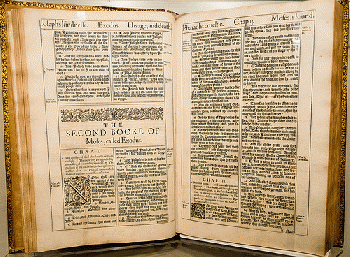Retrospective No. 4: "On the 'Baker's Case' and LGBTQ Rights"
Introduction: This is the fourth in an occasional series that of columns that I previously published both on OpEdNews and other sites, that bear relevance to current events.
40.StopGorsuch.USSC.WDC.31Janu ary2017. Indeed he is, and will be for a very long time.
(Image by Elvert Barnes) Permission Details DMCA
The original version of this column was published in this space last December, at: https://www.opednews.com/articles/LGBT-Rights-and-Religious-by-Steven-Jonas-Abortion_Bible_Freedom-Of-Association_Freedom-Of-Religion-171206-729.html, the day after Supreme Court heard the arguments in the "Baker's Refusal" case. The day after the handing down of the Court's decision in that case I republished it on Reader Supported News/Writing for Godot (see below). This is indeed, a landmark, retrograde case, of which the Gorsuch/Roberts Court is providing the nation with many.
Writing for the majority, Justice Kennedy tried to make it clear that the decision in favor of allowing discrimination against a certain identity group in a public business was not to be taken as establishing a precedent. The decision, he took pains to tell us, really revolved around what he and his six colleagues saw as the impoliteness towards the practice of religious authoritarianism/exclusion on the part of one member of the Colorado Civil Rights Commission. Oh dear! One person's impoliteness, is another's "political correctness," but that is a matter for another time.
However, to the surprise of no one the Religious Right is taking this decision as a sanction for discriminating, and they will do it to a fare-thee-well. As a practical matter, as I put it in a tweet: "thepoliticaljunkies" @tpjmagazine14m14 minutes ago:
Supreme Court has legalized homophobia and discrimination in public places, based on "religious belief" (sic). Next on the docket? Discrimination against persons of color, Muslims, Hindus, Jews, and etc., for the same reason. Religious War, here we come."
And then, as if on cue, came this item: "Texas Church Will Hold Lecture On 'Dangerous' Judaism" (as well as on "dangerous Islam). (See below for the link.)
And now, on to the original column.
Today, December 5, 2017, the Supreme Court heard the arguments in the "Baker' Refusal" case. In simple terms, the case is about the challenge of a (can we say it?) homophobic (few others do, but I will) baker who refused to make a wedding cake for a gay couple. This led to his being charged with a violation of an anti-discrimination law in the state of Colorado. The baker maintains that his "religious beliefs" (really his homophobia, but nobody wants to talk about that) about the sinfulness of homosexuality and in particular the practice, now legal throughout the land, of same-sex marriage. He argues that because the institution of same-sex marriage (now established as the law-of-the-land) violates his religious beliefs, he should not be subject to the Colorado anti-discrimination statute.
The baker lost before the Colorado Civil Rights Commission, the courts in Colorado, and the Federal Courts through the Court of Appeals level. A basically right-wing Supreme Court, with a new far-right member, will for the indefinite future now decide a case that will set the standards for possible public discrimination, not only against the LGBT community, but any other one to which some "religious" person might find some "religious" objection. And of course, the homophobic Trump Administration and its "Justice" department are supporting the baker.
Now the standard way for approaching this case for the pro-LGBT rights forces is that the prohibition of discrimination, in the public marketplace, based on various identifying features of various persons, is prohibited by the state law in Colorado and that the Colorado Civil Rights Commission has the power to enforce the law, which stands against such discrimination, in matters covered by the law. In other words, for LGBT side, it is simply a matter of prohibiting exceptions to a civil discrimination law, based on equality before the law. The baker and his supporters claim that their religious beliefs, and their behaviors based on those religious beliefs, are in control here, as matters of "free speech" and "religious freedom."
In essence, their argument is that their religious beliefs are controlling (click here ) for them for certain of their behaviors, and thus over-ride any interest of the State of Colorado in outlawing discrimination in the public square. Thus, they contend that their "religious freedom," couched in terms of "free speech," permits them to openly discriminate in the public square, against any persons they choose to discriminate against, based, I suppose, on any characteristic of those persons they decide offends their "religious sensibilities."
In my view, the issue here goes well beyond the validity of a state anti-discrimination law and whether a given person, operating in the public square, can choose to disobey it based "free speech" and "religious freedom."
As I wrote some weeks ago (modified here to deal with the LGBT-rights issue), in dealing with the abortion-rights issue and "freedom of religion: "The position of the anti-LGBT-rights forces is based exclusively on the religious concept of "what is 'normal' sexual identity and behavior." And it is a religious concept (just like "life begins at the moment of conception" is a religious concept). In fact, to support it, the anti-LGBT rights movement most often cites the "inerrant word of God" as found in the Bible. They make no bones about the religious source of their position. There were certainly plenty of gay people around in Biblical times. Otherwise the homophobes who were around then too would not have felt the urge to put their proscriptions into the Biblical text.
First Edition of The King James Bible. Obviously handed down directly from the God's hand (in the printing style of the time, of course).
(Image by ejmc) Permission Details DMCA
That the version of the Bible most often cited by the anti-LGBT-rights forces is the King James version, an English translation created in the early 17th century by a 52-member committee of scholars and theologians, is a point often missed by the "inerrantists" (and their critics as well). If the King James version were to be regarded as "inerrant," one would have to assume that "God" spoke through every one of them. And, of course, what does that say about all of the other versions, appearing in numerous translations from the original Aramaic, Hebrew, Greek and Latin? It should also be noted that the man who made the first English translation of the Bible, one William Tyndale, in 1536 was burned at the stake, in England, for having the temerity to do so.
What the Republican Religious Right (and it is the Republican Religious Right, to be sure) wants to do is right out of the 16th century: put the power of the State behind one particular set of religious doctrines (some would call them dogmas). Beyond the matter of whether discrimination based on personal identity can be prohibited by the law is this fundamental question: are religious fundamentalists going to be allowed to set social policy on one of the oh-so-many matters of personal being and belief, based solely on the religious dogmas that they personally adhere to. Of equal importance is that fact that many LGBT people are themselves religious, and within their religious belief is the doctrine that homosexuality is a perfectly normal state of human existence. Thus, they simply have a different set of religious beliefs than do the Republican Christian Rightists, the Fundamentalists, and the Dominionists (like the current Vice-President of the United States).
And so, as in the case of fighting for abortion-rights, this is truly the fundamental issue: can the State, in the guise of "protecting religious freedom" endorse one religious view as against another. In the case of abortion, as I pointed out in the previous column, the Republican Religious Right wants to use the force of the criminal law to enforce one religious view (and it is always a religious view, told to us most forcefully by its holders) of "when life begins" as against another. In the case of the rights of LGBT-people, the Republican Religious Right wants to use the civil law to make them into second-class citizens --- that is outside the protection of a civil law against discrimination in the public square.
Czech - Jan Hus. You know, the Catholic Church of the time, about 100 years before Luther, just didn't like the way he approached the Eucharist, among other things (en.wikipedia.org/wiki/Jan_Hus).
(Image by archer10 (Dennis) 134M Views) Permission Details DMCA
In terms of state support, and enforcement, of one religious view as against certain others, the Republican Religious Right would take us back to the 16th and 17th centuries when, after the onset of the Protestant Reformation, religious wars were fought all over Europe over such questions of religious doctrine, religious freedom, and the Role of the State in matters of religion. So, the Cake Baker's case goes well beyond the concept of what exactly is the relationship between a given religious belief, (and as in the matter of abortion-rights it is always a matter of belief) and potential discrimination in the public square. Should it be state-sanctioned? Indeed, the State and Religion: a very dangerous, often lethal, combination.
This column, originally published at: https://www.opednews.com/articles/LGBT-Rights-and-Religious-by-Steven-Jonas-Abortion_Bible_Freedom-Of-Association_Freedom-Of-Religion-171206-729.html, as noted in the text is based in part on a previous OpEdNews column: "Losing the Abortion Wars," also published at RSN/Writing for Godot, click here.
Link to Texas Church's program on "dangerous Judaism:" click here.


